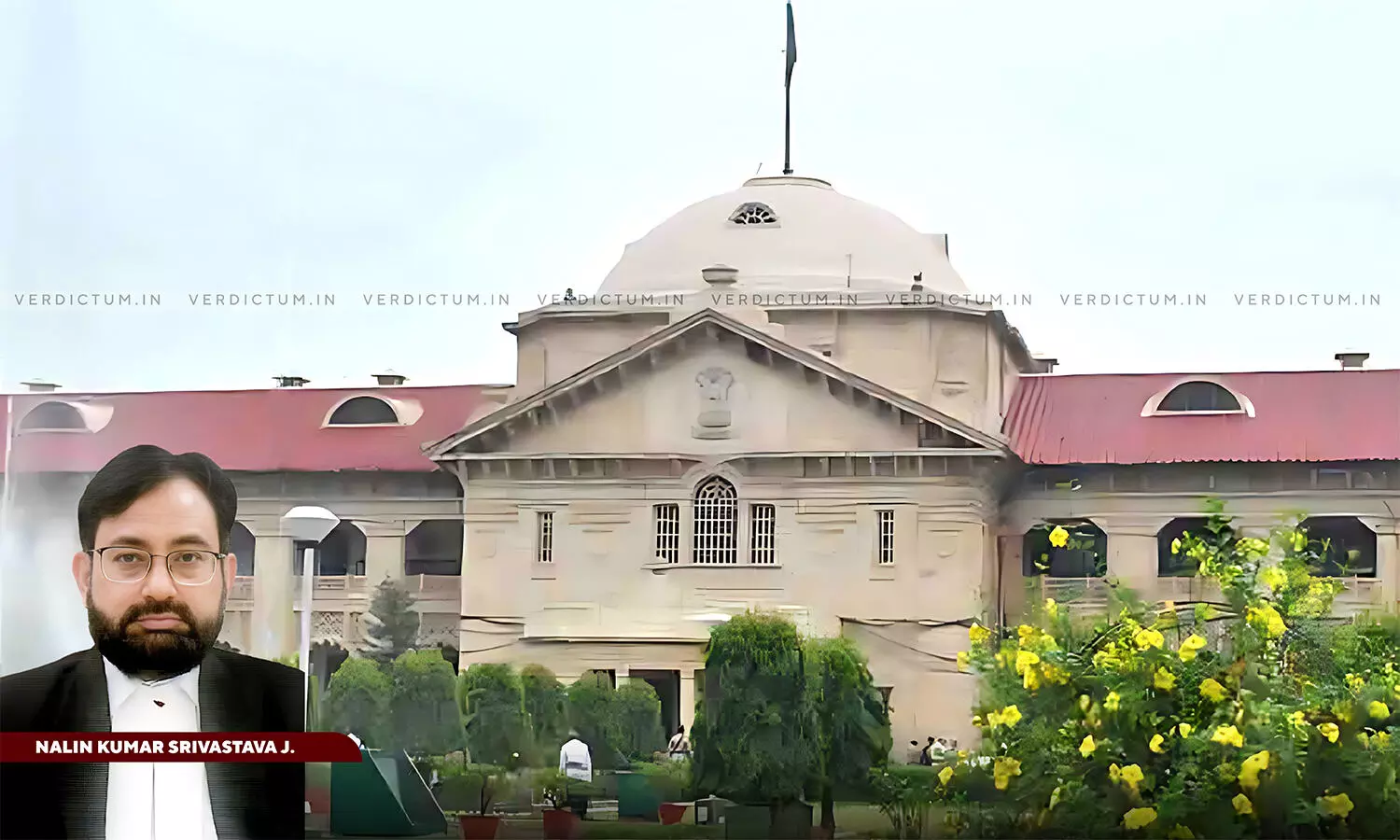
No Criminal Activity In A Span Of About Seven Years Disclosed: Allahabad HC Quashes Externment Order Under UP Control Of Goondas Act
 |
|The Allahabad High Court observed that the authorities took a hyper technical approach against an individual by passing an order under the UP Control of Goondas Act, 1970 even though the individual did not indulge in any criminal activity for continuous 7 years.
The Court was hearing a Writ Petition seeking to quash the impugned order passed under Section 6 of the Uttar Pradesh Control of Goondas Act, 1970 as well as the impugned externment order under Section 2/3 of the Uttar Pradesh Control of Goondas Act, 1970.
The bench of Justice Nalin Kumar Srivastava observed, “…in a span of about seven years no criminal activity on the part of the petitioner was disclosed in the impugned order and this situation raises a genuine question that if for a period of about seven years the petitioner never indulged in any criminal activity and the next criminal case was assigned…how the… was satisfied that the petitioner falls within the category of ‘goonda’, as defined in Section 2(b) of the Act…a very hyper technical approach has been adopted…”
Advocate Mohd. Samiuzzaman Khan appeared for the Appellant.
Brief Facts-
In the present case it was alleged that the petitioner is a notorious criminal under the U.P. Control of Goondas Act as multiple criminal cases were registered against him. The Petitioner denied the charges, claiming they stemmed from personal enmity and said that he got bail in all cases. The Court, while taking note of his criminal history, ordered him to leave Ghaziabad for six months. It was upheld in the Appeal as well.
The Court mentioned the decision in Shankar Ji Shukla vs. Ayukt, Allahabad Mandal, Allahabad and others, (2005) where according to the Court it was held, “a person cannot be held to be ‘goonda’ only on the basis of one or two acts, he can be held to be goonda only when he is in habit of committing repeated offence.”
The Court further relied on the decision in Irfan Khan vs. State of U.P. (2001) and quoted, “No proceeding under the Act can be initiated against a person simply on the basis of a report by the S.H.O that he is likely to create disturbance in the election. The power under the Act can be exercised on the basis of objective consideration of evidence and material and not on the basis of a report made by S.H.O. which itself is based upon his subjective satisfaction. Therefore, the impugned order is not only illegal but also wholly without jurisdiction and cannot be sustained at all.”
The Court noted that if in the aforesaid three cases, the witnesses of fact appeared before the Court of law without any fear of the Petitioner and gave evidence in favour of the prosecution how it can be said that due to the terror or menace of the Petitioner in the society, no person as witness came forward to depose against him.
The Court observed, “Both the authorities acted in a routine manner and mechanically in passing the impugned orders which clearly show the lack of application of judicial mind on their part.”
“The right to freedom guaranteed under Article 19(d) of the Constitution of India is a valuable right of all the citizens of India and cannot be taken away only on the basis of vague and insufficient allegations by way of imposition of unreasonable restrictions passed in an arbitrary and casual manner.”, the Court added.
Accordingly, the Court allowed the Writ Petition and set aside the impugned orders.